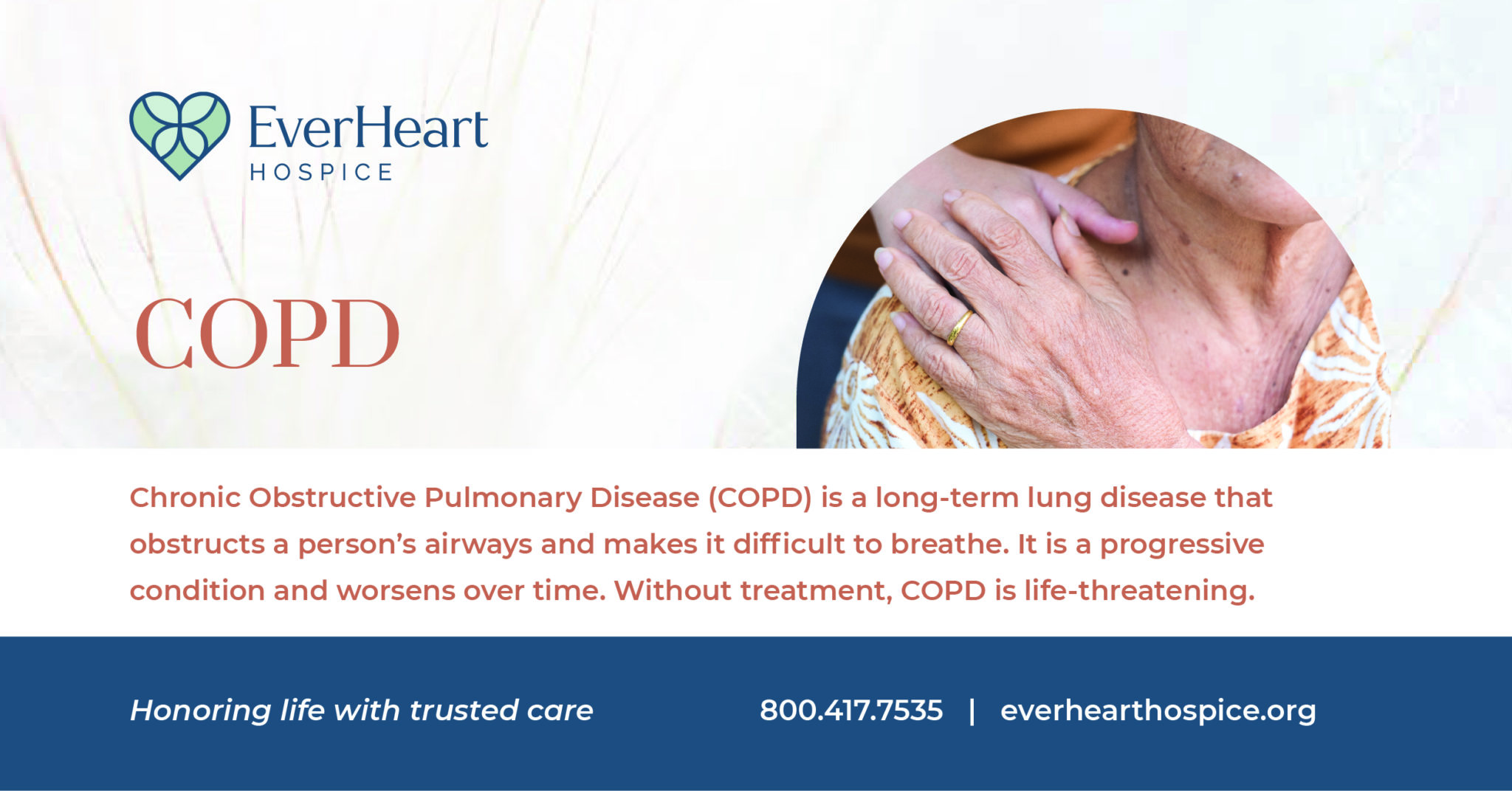The Latest
What is COPD?

Chronic Obstructive Pulmonary Disease (COPD) is a long-term lung disease that obstructs a person’s airways and makes it difficult to breathe. It is a progressive condition and worsens over time. Without treatment, COPD is life-threatening.
Causes of COPD
About 85 – 90% of all COPD cases are caused by smoking. When a cigarette burns, it creates more than 7000 chemicals. The toxins in cigarette smoke weaken your lungs’ defense against infections, narrow air passages, cause swelling in air tubes, and destroy air sacs.
Additionally, long-term exposure to air pollution, secondhand smoke, dust, fumes, and chemicals (often work-related) can lead to COPD. A small number of people have a rare form of COPD called alpha-1 deficiency-related emphysema caused by a genetic condition that affects the body’s ability to produce the Alpha-1 protein that protects the lungs.
Symptoms of COPD:
According to the Mayo Clinic, there are many symptoms that can occur as a result of COPD. These can include:
- Chronic cough, shortness of breath while doing everyday activities (dyspnea)
- Frequent respiratory infections
- Blueness of the lips or fingernail beds (cyanosis)
- Fatigue
- Producing a lot of mucus (phlegm or sputum)
- Wheezing
When a person with COPD experiences these symptoms with higher intensity, it is referred to as an exacerbation. The episode may last several days.
Additional Complications:
Living with COPD can also make a person more likely to experience other health complications. Examples include:
- Respiratory Infections
- Heart Problems
- Lung Cancer
- High Blood Pressure in lung arteries
- Depression
When to Consider Hospice or Palliative Care:
Patients living with COPD may reach a point in their diagnosis when Hospice or Palliative care would offer comfort and symptom relief. Signs that it may be time to discuss Hospice care include:
- Disabling dyspnea at rest
- Poorly responsive to bronchodilators resulting bed to chair existence, fatigue, and cough
- Increased ER or Hospital visits
- Unintentional weight loss
- Recurrent serious infections
How EverHeart Hospice can help:
EverHeart Hospice offers both Palliative Care and Hospice Care options. Palliative care is an extra layer of support that focuses on the relief of physical, spiritual, and emotional symptoms. Quality of life for the patient and family is the ultimate goal.
Hospice care is specialized care for individuals experiencing a life-limiting illness with a life expectancy of six months or less and who no longer wish to seek curative treatment. Hospice Care focuses on the patient’s comfort and goals, allowing you to spend more quality time with family. Hospice care is provided to patients wherever they call home.

